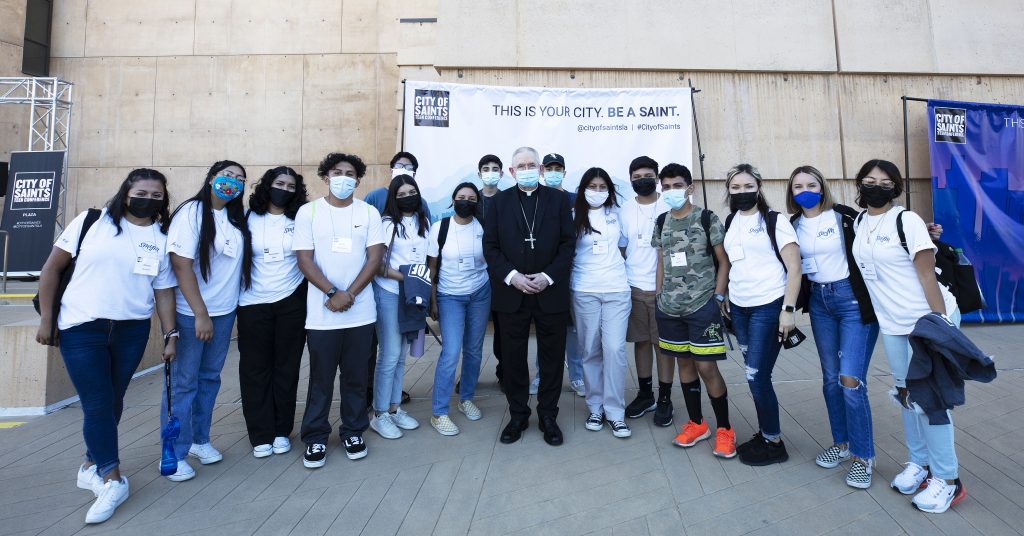At a recent retreat for our parish school’s seventh- and eighth-graders, I was surprised to find the teachers asking the students about their faith and listening closely to their answers.
Why? Because I’ve noticed how in the Church, we sometimes act like we adults have all the answers. They asked how the students regarded their non-Catholic friends and families. I expected someone to say that they “prayed for them” or that they were careful around them (maybe because that is sometimes my attitude). But no one did.
Instead, a young lady wearing a Rick and Morty t-shirt stood up and announced that she valued them as fellow travelers on the journey whom she could team up with and learn from. Hearing her exercise her freedom in that way made me a little nervous. These free-thinking young people could easily get lost or confused! I felt an urge to steer her in a safer direction, toward her own tribe. I realized, however, that she had perfectly summed up a very Catholic term I have only begun to learn about: synodality.
This month, the Church kicked off a “Synod on Synodality,” a two year process designed to involve the global Church, from parish to diocese to the Holy See. According to Pope Francis and the synod fathers, “synodality” expresses “the very nature of the Church,” which is “mutual listening.”
Jesus said he was not only the Truth but also “the Way,” and the first Christians were known as “followers of the Way.” Synodality expresses that the Church’s “way,” going back to the apostles, is to walk together, to listen for God within one another, and to include any who might be separated from the group. “Listen to him by listening to each other,” says the pope, “and do not leave anyone out or behind.”
Our young people feel left out. At least, that’s what they expressed at a special session of the 2018 City of Saints youth conference in Los Angeles in preparation for that year’s Synod on Young People. Their message has stuck with me ever since I first heard the Office of Youth Ministry report it: While the youth said they feel seen and heard by youth ministry in the archdiocese, they don’t experience the same support from Church leaders and the broader community. Their desire for a seat at the table often goes unfulfilled due to what others see as age and lack of experience.
As I learned with the seventh- and eighth-graders, our young people’s simplicity holds within it a beautiful gift to the Church, an openness to the Holy Spirit. They are actually ahead of us “experts” in practicing the way of mutual listening, and we can learn from them if we let go of our nervousness and tendency to over-steer them.
A friend recounted to me how her teenage kids staged an intervention with her. They gently asked her not to “monologue” so much when it came to matters of faith. They encouraged her to leave space to listen to how the Holy Spirit was speaking through them. We spend much more time presenting young people with arguments than creating spaces for them to share how God is moving in them. Synodality affirms that it is the Holy Spirit that safeguards truth (John 16:13, 1 Cor 2:16), freeing us to spend more time practicing God’s way in how we engage with one another.
At the conference, the youth expressed their sensitivity to those who feel left behind by the Church. They are asking for a space in the Church to journey with those who have not been included, and struggle to understand why there already isn’t such a space. Perhaps Jesus struggles with this too, and has led us to this new opportunity to listen and include.
“Nobody has exclusive rights over Jesus,” says the pope, warning against a mentality in which we “judge and exclude.”
Jesus said, “Unless you become like children you will not enter the Kingdom of Heaven” (Matthew 18:3). Our young people have an innate sense that the Church is meant to be a place of encounter rather than exclusion. As the Holy Spirit leads us during this synod to become a listening Church, perhaps we could join in listening with them.

